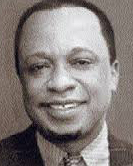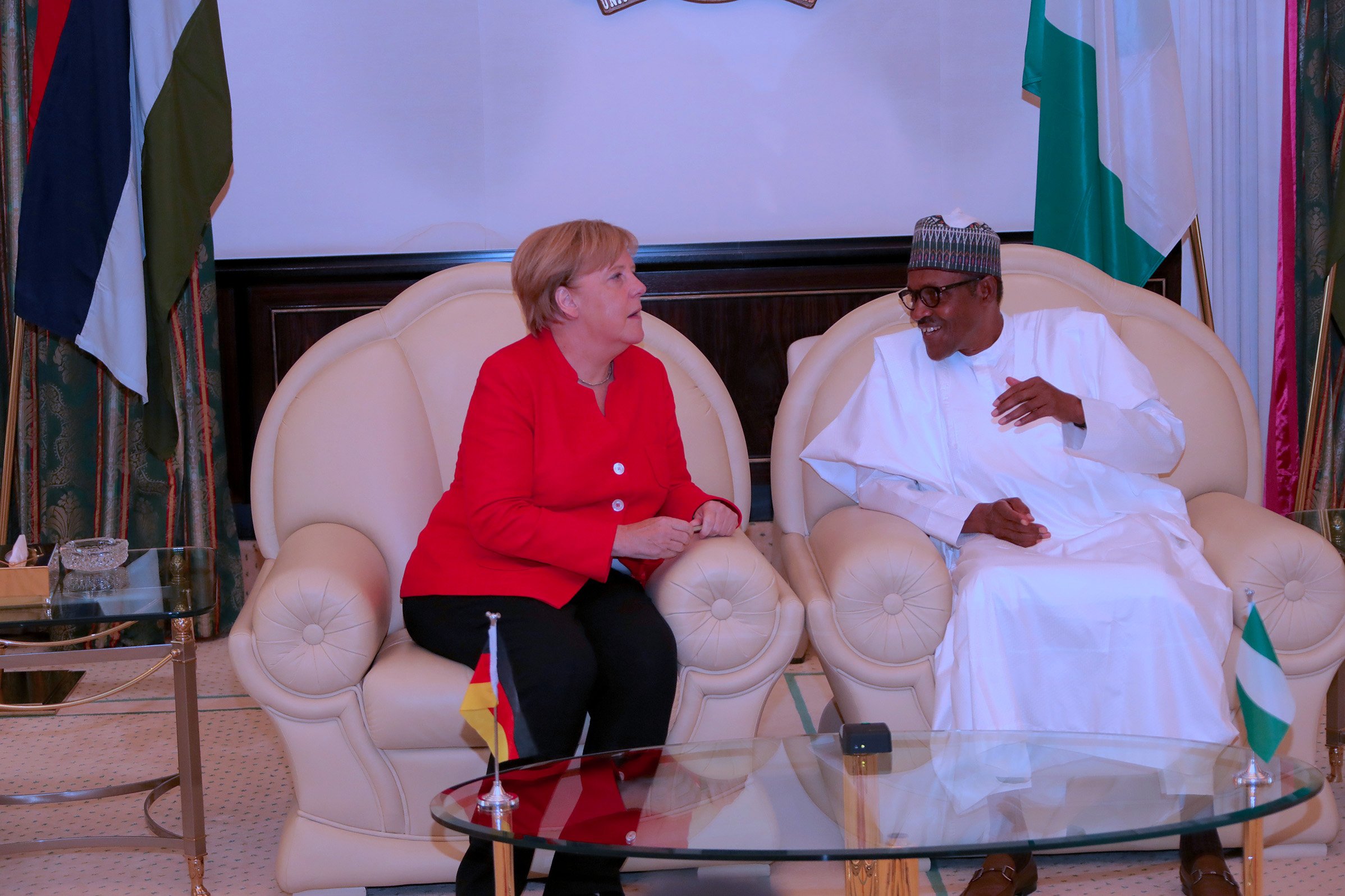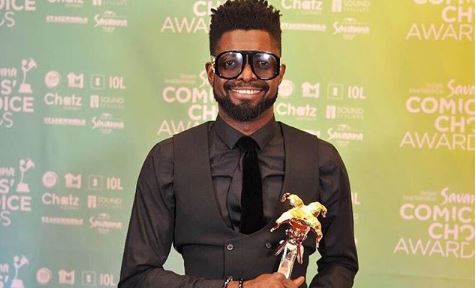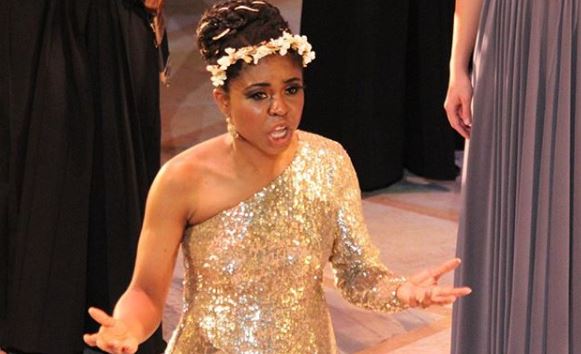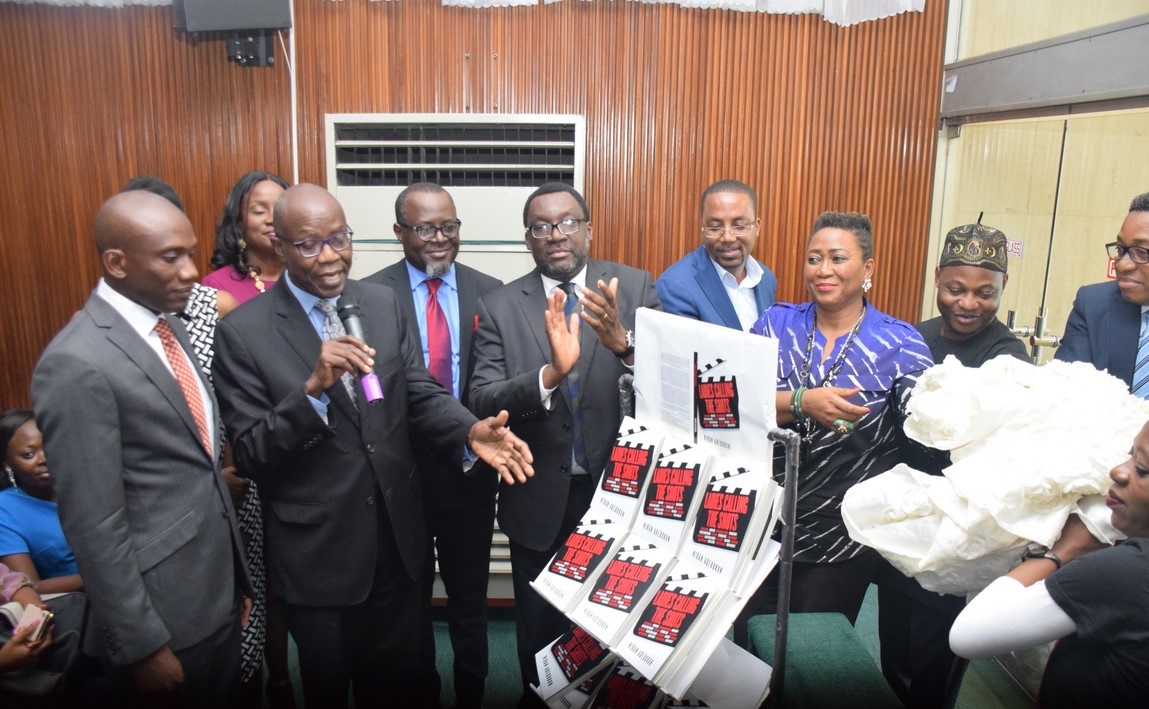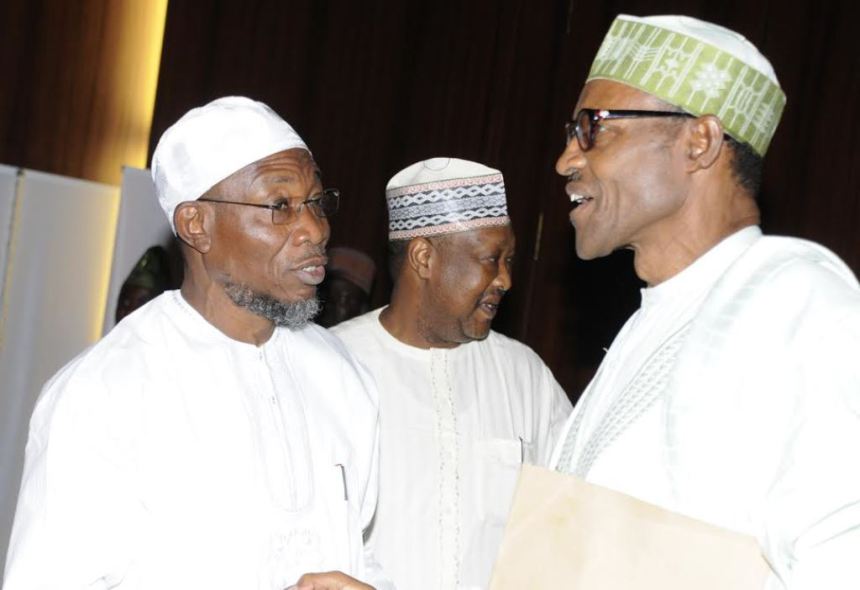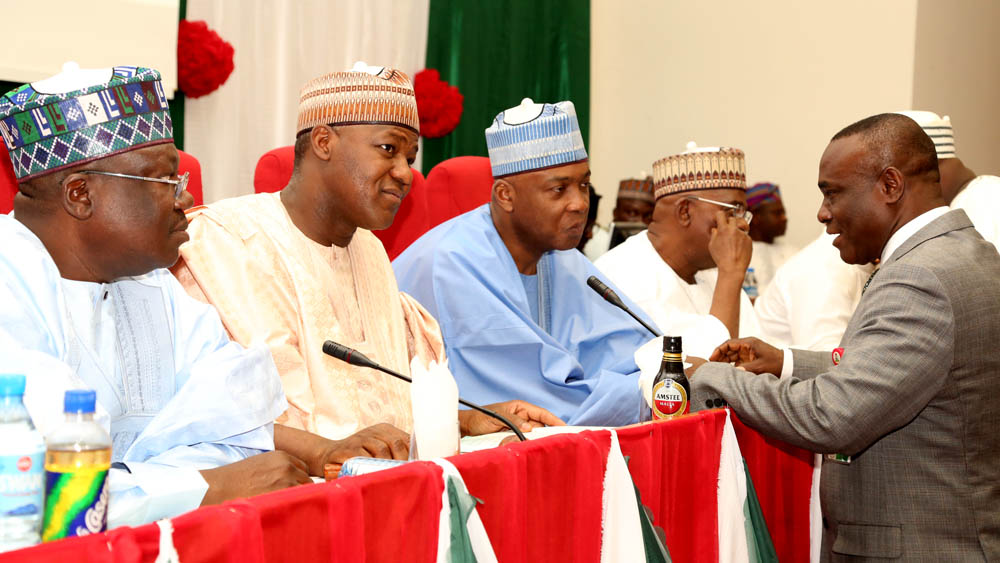As President Muhammadu Buhari met with Chancellor Angela Merkel behind closed doors last week, a lively business roundtable was holding in The Brown Room, one of the many meeting rooms in presidential villa. It was there the secret behind the success of German businesses was revealed by the visitors. It could not be ignored; it dominated the talks for several minutes.
The economy of Germany is a social market economy, the largest national economy in Europe.
“Size is not why our businesses are successful that grow over generations; we are successful because we are mostly family businesses that grow over generations, not just small-scale enterprises,” a member of the German delegation, who is a founder and CEO of a company, said. “German businessmen are extremely focused, extremely serious, and we also focus on communication.”
Some other members of the 16-member business delegation, led by Dr Ulrich Nussbaum, secretary of state, federal ministry for economy and energy spoke in the same vein.
Advertisement
These founders and/or CEOs of successful German brands spoke passionately about Mittelstand, said to be the backbone of the German economy.
The Mittelstand are a core of small and medium-sized firms, many of which have existed for generations and noted for their durability and resilience.
According to Wikipedia, Mittelstand companies are “highly focused, achieving unprecedented efficiencies by designing a business model with a razor-thin focus and learning to do the one thing really well”; then to “compensate for their razor-thin focus, they diversify internationally and enjoy great economies of scale”.
Advertisement
Although the term could be more loosely applied, Mittelstand companies share the following features: Family ownership or family-like corporate culture, generational continuity, long-term focus, emotional attachment, flexibility, and lean hierarchies.
Among other things, the German delegation was also apprised of the strength of the Nigerian economy as well as opportunities for investments and partnerships.
On the Nigerian side were Dr. Okey Enelamah, minister of industry, trade and investment, who chaired the talks, finance minister Kemi Adeosun, Segun Awolowo, CEO of the Nigeria Export Promotion Council and members of the private sector, among others.
In his opening remarks, Enelamah enjoined participants of the roundtable to take advantage of the forum to partner with the government to build synergies that will translate to increased trade and investment flows between Nigeria and Germany, help establish and strengthen business relationships and provide practical lessons.
Advertisement
He explained the objectives of the forum as: “presenting the case for why we believe that Nigeria is the investment destination of choice. And we believe the German business community will continue to take advantage of the massive investment opportunity that Nigeria represents. Nigeria remains the number one investment destination in Africa, with announced investments of US$66.36 Billion in 2017. Apart from our domestic market of over 180 million, the largest in Africa, we are also the main gateway to the regional West African consumer market that is about as large as ours.
“Discussing and learning about two underlying strengths of the German Economy – the small and medium scale businesses (SMEs) and technical training.
“It is a well known fact that Germany enjoys a leading position among the world’s exporting nations because of your successful SMEs. Germany boasts an exceptional number of ‘hidden champions’ – companies which rank among the top three on the global market or are European leaders but are little known to the public. It is estimated that SMEs in Germany constitute more than 3.6 million companies and provide more than 60 percent of all jobs in your country.”
He said the Nigerian government is committed to building on our core advantages and using examples from countries like Germany to deliver a sustainable and inclusive economy.
Advertisement
“We believe that our role is to create the enabling environment for investors and businesses to thrive,” he stated, adding that there has been a renewed emphasis on building out the hard and soft infrastructure to make Nigeria one of the most attractive places for business.”
In a presentation, Awolowo, executive director/chief executive officer of the Nigerian Export Promotion Council, highlighted Nigeria’s economic performance under the Buhari administration and outlined foreign investment opportunities and incentives in Nigeria.
Advertisement
He said Nigeria’s zero-oil plan is aimed at generating “ an extra US$25-30 billion from non-oil exports, and eliminate the country’s over-dependence on crude oil prices.”
“Germany is expected to play a significant role in providing foreign investments to boost the Nigerian exports agenda,” he added.
Advertisement
Towards the end of the forum, President Buhari and his guest, Chancellor Merkel, draped in simplicity with no airs around them joined in from an adjoining office. As they took their seats among their respective delegations the optics showed contentment about the success of the day.
After a briefing of the two leaders by Dr, Enelamah, they commended the outcome of the deliberations.
Advertisement
The forum had started earlier in the meeting room of Vice President Yemi Osinbajo with the signing of Memorandums of Understanding between the two countries.
They were:
MoU between the Nigerian Association of Chambers of Commerce, Industry, Mines and Agriculture, (NACCIMA) and the German-Africa Business Association. Deputy national president of NACCIMA Saratu Abubakar, signed on behalf of Nigeria, while Stefan Liebing, of German Africa Business Association, signed on behalf of the German business delegation.
Agreement between the Nigeria Incentive-Based Risk Sharing System for Agricultural Lending, NIRSAL, and the PETKUS Technologie GmbH, a company that specializes in post-harvest agricultural value chain which was signed by Aliyu Abdulhameed and a representative of PETKUS Technologie GmbH, Peter Huser.
The MOU between Nigeria and Volkswagen was signed by the Dr. Enelamah on behalf of the Federal Government of Nigeria, and Mr. Thomas Schaefer, Head of Volkswagen sub-Saharan operations for the establishment of an automotive hub in Nigeria.
Speaking after signing the MOUs, Enelamah said the agreements would increase collaboration between Nigeria and Germany to grow small and medium enterprises in Nigeria.
“We want our MSMEs to learn from the German experience and be as important. The other area of German excellence is the technical area- technical education, technical training and technical development. It’s also an area of great interest to Nigeria,” Enelamah said.
Theresa May
A few days before the visit of the Germans, British Prime Minister Theresa May led a delegation to Nigeria. Both in Abuja and Lagos, where they visited trade and investment featured prominently in his meetings.
“I was in Abuja and also in Lagos to see the thriving business community here. We want to see increased trade between Nigeria and UK, increased investment, bringing jobs here in Nigeria, jobs in the UK.”
Speaking on her visit to Lagos, Governor Akinwunmi Ambode said it centred on in improving investment in the state and the country in general.
FOCAC in China
In China where President Buhari attended the 7th Summit of the Forum on China-Africa Cooperation (FOCAC) shortly after the visit of the Germans, trade and investment also got prime attention.
Indeed about 100 Nigerian businesses and 300 Chinese firms participated in the Nigeria-China business forum which took place a day after President Buhari began his visit,
President Buhari expressed satisfaction with the fruitfulness of FOCAC, disclosing that Nigeria has gained from China the execution of infrastructure projects worth $5bn across the country in the last three years.
Outlining the benefits of last week’s visit to China, Presidential Spokesman Garba Shehu said the Nigerian delegation signed 13 agreements during the summit out of 25, with more to be signed by the Nigeria Investment Promotion Council and the Attorney-General and Minister of Justice of the Federation.
He added that: “In all, more than USD 10 billion agreements were signed. Others, still under discussion will be quantified upon the conclusion of discussions by various parties. Among those that have been signed, in agreements or MOUs include the agreement entered by the Ministry of Industries, Trade and Investment with Shandong Ruyi International Fashion Industry for USD 2 billion, for a first-ever cotton value chain – that is from cotton growing to ginning, spinning, textile manufacture and garment with Katsina, Kano, Abia and Lagos States as the chosen locations; and the agreement between the China National Petroleum Corporation, and the Nigeria National Petroleum Corporation for the Ajaokuta – Kaduna-Kano (AKK) gas pipeline.”
Conclusion
So in less than two weeks, Nigeria had high-profile engagements with three of the world’s leading economies.
Industry, trade and investment minister unpacks the implications for Nigeria: “Naturally, these are strong stimuli to trigger excitement. The leaders of those powerful nations demonstrated belief in the potentials of the Nigerian economy; and endorsement of our efforts in exploiting the potentials in the various sectors of the economy for the benefit of all Nigerians.
“They also see in the economy investment opportunities for their nationals, which they didn’t mince words about.
“For sure, Nigeria is a strong economic force for partnerships in trade and investment. The several MoUs signed in the last few days testify to this.
“The ministry, and the federal government in general is committed to ensuring that the country derives maximum benefits from the engagements and continue to improve the investment climate.”
Bisi is strategy and communications adviser to minister of industry, trade and investment, Dr. Okey Enelamah
